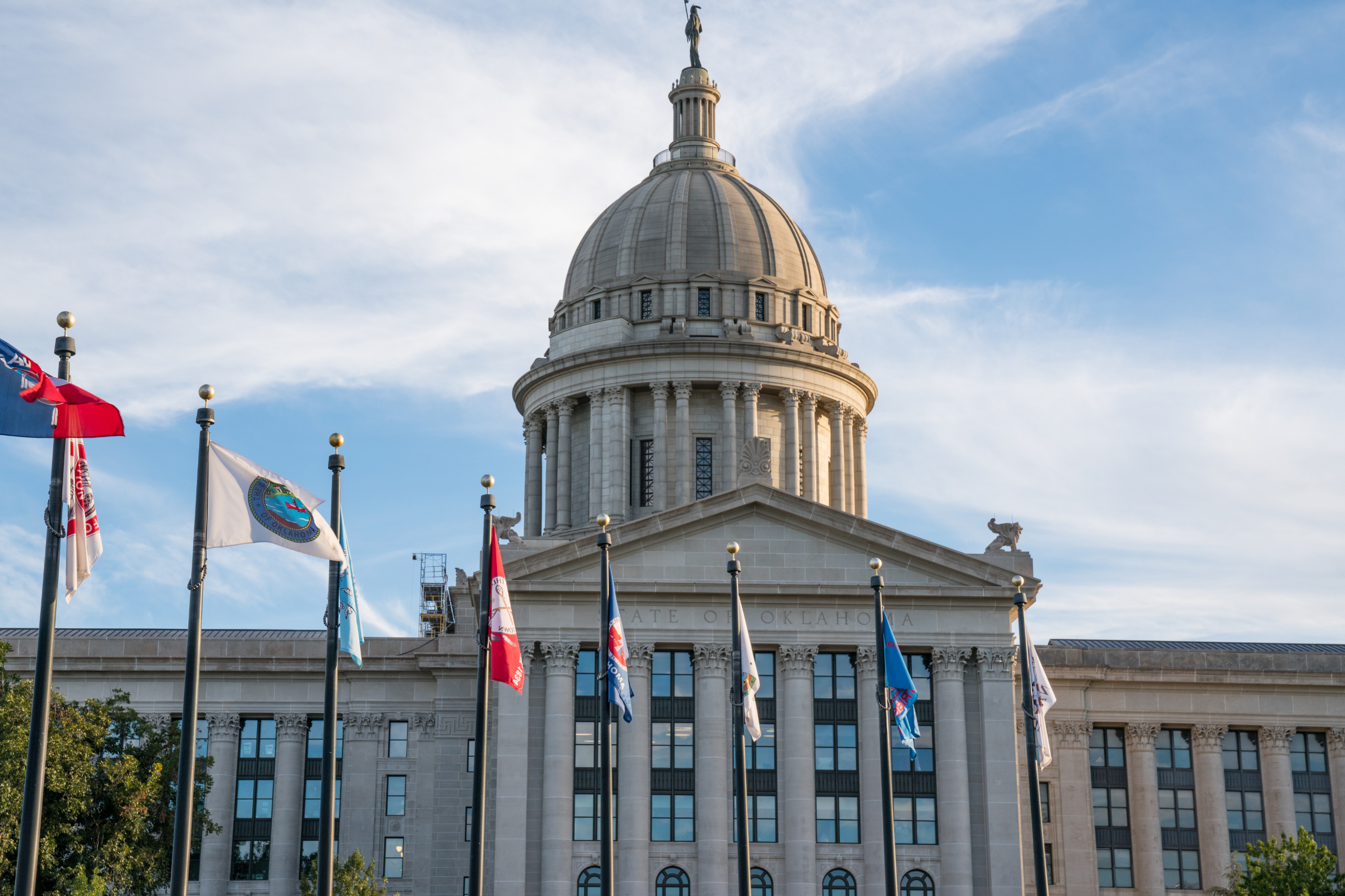
- Details
- By Chez Oxendine
Oklahoma tribes have emerged temporarily victorious in another scrap with the state’s Republican governor Kevin Stitt following the Oklahoma senate’s override of Stitt’s vetoes on tribal compact extensions.
The Senate voted Monday to override Stitt’s vetoes on Senate Bill 26 and House Bill 1005, which would extend state-tribal compacts regarding a state-tribe split of revenues from tobacco products sold on tribal lands and motor vehicle registrations, respectively.
For many tribes, those compacts were scheduled to lapse at the end of 2023. While the Senate’s override on House Bill 1005 was the last vote needed to secure the extension on motor vehicle registration compacts, Senate Bill 26 will now return to the Oklahoma House of Representatives for a final override vote.
Cherokee Nation Chief Chuck Hoskin, Jr. applauded the Senate’s vote, calling it a “great step forward” in preserving decades-old compact agreements.
“The bipartisan supermajority of Senators who voted to extend our tribal-state compacts, overriding the Governor’s veto…saw this need, and I thank them for their support,” Hoskin said in a statement. “This vote shows once again that the Governor is isolated in his choice of conflict over cooperation with tribes. Cherokee Nation is ready to continue working with any and all good-faith partners in the state who respect our sovereignty.”
An extension allows tribes and the state to continue renegotiating those compacts, according to a conference held post-vote by Senate President Pro Tempore Greg Treat.
During the press conference, Treat said the legislature could step in and take over negotiating those compacts if Stitt continues his trend of battling tribes at every turn.
“I think of this as a probationary period to see if [Gov. Stitt] can act in good faith and get true negotiations going, and then we can reassess next session whether or not we wish to amend that,” Treat said during the press conference. “The role of the legislature is clear, that we have a role now to approve or disapprove those compacts. If we wish to get more involved…it’s a little less clean, you would hope you have a central point of negotiation, but if we see that is not fruitful, we reserve the right to be able to change that law.”
Chickasaw Nation Governor Bill Anoatubby said in a statement that he looks forward to continuing “collaboration” on a “durable compact agreement” thanks to the veto overrides.
“We appreciate the work of the Oklahoma Senate in successfully overriding these vetoes,” Anoatubby said. “We embrace legislative participation and remain committed to upholding our cooperative approach, fostering open and honest dialogue.”
The maneuver marks a decided split between Stitt and the state legislature on how to negotiate with tribes, who Stitt fears will “turn Eastern Oklahoma into a reservation,” per reporting by the Tulsa World. Since his ascent to office in 2018, Stitt has repeatedly attempted to renegotiate tribal compacts and challenge tribal jurisdiction, creating an often contentious relationship with Oklahoma’s 39 federally recognized tribes.
During his two terms in office, Stitt, himself a Cherokee Nation citizen, has vetoed a vast majority of legislative measures endorsed by the state’s tribes, including a bill that would allow tribal students to wear regalia at graduation ceremonies. During this latest battle with tribes, Stitt contended that the language used in many of the new tobacco compacts proposed by tribes would undercut non-Native retailers in the 40 percent of the state recognized as an existing Native reservation by the U.S. Supreme Court’s landmark McGirt decision in 2020.
During a press conference held in June, Stitt said the primary difference in language between his proposed compacts and tribes’ proposed contracts was where tribal tobacco products could be sold - while Stitt wanted to limit those sales to trust lands, tribes instead wanted products sold on fee lands included as well.
“These two compacts are almost identical…we have offered the tribes the exact same financial terms - a 50/50 split of revenues on a one-year extension,” Stitt said during the press conference. “...the tribes are pushing for the compact [with a] definition of Indian Country that, after the McGirt decision, has different consequences. It potentially could mean 42 percent of our state, that’s why they want that compact signed.”
More Stories Like This
NCAI Passes Two Emergency Resolutions on Immigration Enforcement ActivitiesChickasaw Lighthorse Police Officer named Indian Country Law Enforcement Officer of the Year
Indian Gaming Association Rallies Broad Coalition Against Sports Event Contracts It Calls Illegal Threat to Tribal Sovereignty
Navajo Resources and Development Committee Issues Notice on Livestock Inspection Requirements
American Prairie, Tribal Coalition Files Protest Over Rescinded Grazing Rights
Help us defend tribal sovereignty.
At Native News Online, our mission is rooted in telling the stories that strengthen sovereignty and uplift Indigenous voices — not just at year’s end, but every single day.
Because of your generosity last year, we were able to keep our reporters on the ground in tribal communities, at national gatherings and in the halls of Congress — covering the issues that matter most to Indian Country: sovereignty, culture, education, health and economic opportunity.
That support sustained us through a tough year in 2025. Now, as we look to the year ahead, we need your help right now to ensure warrior journalism remains strong — reporting that defends tribal sovereignty, amplifies Native truth, and holds power accountable.
 The stakes couldn't be higher. Your support keeps Native voices heard, Native stories told and Native sovereignty defended.
The stakes couldn't be higher. Your support keeps Native voices heard, Native stories told and Native sovereignty defended.
Stand with Warrior Journalism today.
Levi Rickert (Potawatomi), Editor & Publisher


